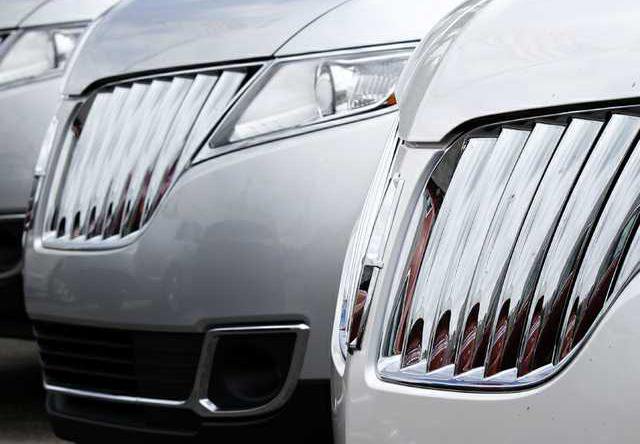DETROIT - Big discounts helped U.S. auto sales sizzle in July.
Toyota, Ford, Nissan and Chrysler all saw double-digit sales gains. General Motors' sales were up 9 percent compared with last July, while Hyundai's rose 1.5 percent. Of major automakers, only Honda and Volkswagen saw declines.
It was the best July for the industry since 2006. New vehicle sales rose 9 percent to 1.4 million, according to Autodata Corp.
Automakers typically offer deals in the summer to clear out inventory before cars from the new model year arrive in the fall. But July's discounts were unusually high.
Incentives rose 8 percent - or $216 per vehicle - over last July, according to Jesse Toprak, chief analyst for the car shopping site Cars.com. Incentives averaged $2,774 per vehicle, their highest level since August 2010. Toprak said Ford, Toyota, Volkswagen and Hyundai were the most generous; GM and Honda spent less.
Toyota was offering zero-percent financing on a five-year loan and $1,000 cash back on the Camry sedan. Ford offered $6,000 cash back on a new Expedition SUV.
Edmunds.com said 13.5 percent of new car loans in July had zero-percent financing, the highest level since December 2010.
John Felice, Ford's U.S. sales chief, says a slowing rate of sales growth will force automakers to get even more aggressive to steal sales away from competitors. That's already happening with small and midsize cars. For instance, buyers are paying an average of $1,000 less for a Ford Fusion sedan than they did a year ago, Felice said.
But demand for SUVs and trucks remains strong, and so does pricing. Overall, Felice said, buyers are still paying $800 more per vehicle than they did last year. That's because even with discounting, more people are choosing pricier SUVs and loading them up with features.
Michelle Krebs, a senior analyst at AutoTrader.com, isn't alarmed about growing incentives. Things have changed from a decade ago, when automakers were making too many vehicles and had to use across-the-board incentives to sell them. Companies have cut back on production, she said, and they use incentives in a much more strategic way. They're also profitable, so they can afford to give a little on price.
Based on July's sales, J.D. Power and Associates raised its forecast for full-year U.S. sales to 16.3 million vehicles. That's approaching the peak of 17 million set in 2005. Auto sales have led the uneven U.S. economic recovery, with sales increases of 1 million or more vehicles in each of the last four years. But that pace is slowing. U.S. sales totaled 15.6 million in 2013.
Nissan sales rose 11 percent to 121,452. Sales of the electric Leaf increased 62 percent to 3,019, a record July for the car, which went on sale in 2010.
Toyota said its U.S. sales gained 12 percent to 215,802 on double-digit gains for the Camry and Corolla sedans and a 37 percent increase in sales of the newly redesigned RAV4.
Toyota edged out Ford, whose sales increased 10 percent to 204,373. The country's best-selling vehicle, the Ford F-Series pickup, was up 5 percent to 63,240, while Ford's new Transit Connect van was up 41 percent.
GM's sales rose 9 percent to 256,160 as strong demand for its new large SUVs outweighed lingering concerns about the automaker's recent string of recalls. Chevrolet Tahoe sales were up 51.5 percent.
Other automakers said:
- Honda's sales fell 4 percent to 135,908. Accord sedan sales rose 11 percent. Sales in the Acura luxury division fell 18 percent, however. Acura sold out of TL and TSX sedans as it launches their replacement, the new TLX. Honda also spent less on incentives than its rivals, according to Cars.com.
- Hyundai sales rose 1.5 percent to 67,011. Sonata sedan sales were up 19 percent, while the Santa Fe SUV jumped 26 percent.
- Kia sales rose 7 percent to 52,309. Sales of the Sorento SUV increased 75 percent.
- Subaru sales jumped 27 percent to 45,714 on the strength of the new Forester SUV.

